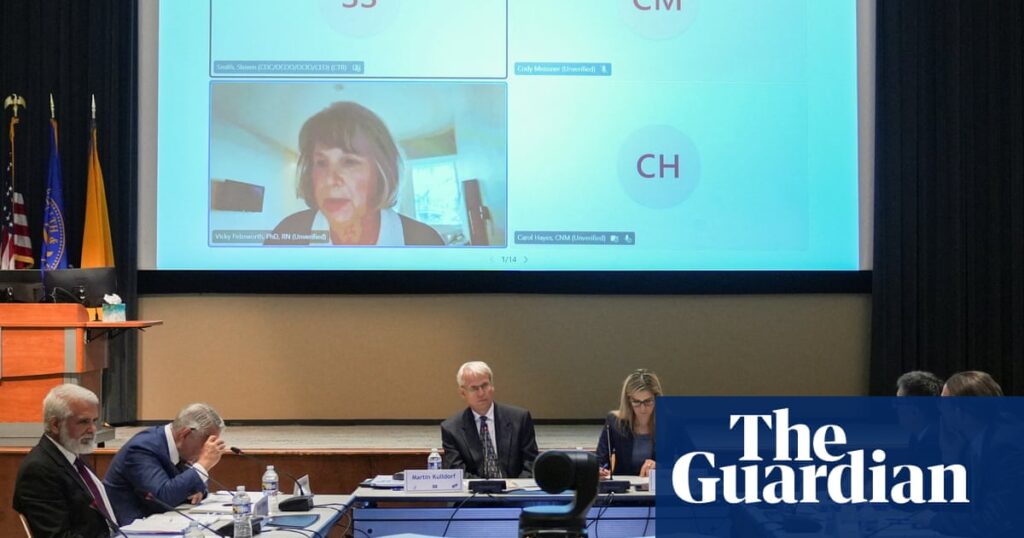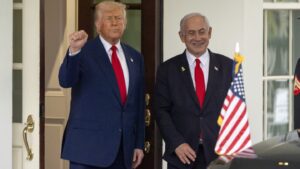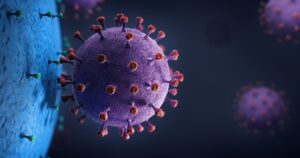
WASHINGTON, D.C. – A pivotal decision was made as Robert F. Kennedy Jr.’s restructured vaccine advisory panel endorsed a novel treatment to combat respiratory syncytial virus (RSV) in infants.
Breaking: New RSV Treatment Gains Approval
The advisory panel, now under Kennedy’s leadership, has recommended clesrovimab, a monoclonal antibody branded as Enflonsia by Merck, for preventing RSV in infants. This decision follows the recent approval by the Food and Drug Administration (FDA) approximately two weeks ago.
Immediate Impact
The vote, delayed and contentious, took place after extensive questioning by the panel’s seven new members, all aligned with former Trump health secretary’s ideology against “overmedicalization.” Dr. Retsef Levi of MIT, a vocal critic during the hearings, expressed his concerns about the treatment and voted against its recommendation.
Key Details Emerge
The panel, officially known as the Centers for Disease Control and Prevention’s Advisory Committee on Immunization Practices (ACIP), plays a crucial role in advising vaccine distribution and other interventions. Kennedy’s overhaul of the committee, replacing its 17 members with his appointees, has sparked criticism from the medical community.
“I think we need to ask ourselves what the parent would say given this data,” said Dr. Retsef Levi, who voted against the recommendation.
Industry Response
The decision to recommend clesrovimab for infants under eight months during RSV season and its inclusion in the Vaccines for Children program was met with mixed reactions. Five members voted in favor after prolonged discussions, while two members, including nurse Vicky Pebsworth, opposed.
By the Numbers
RSV is the leading cause of hospitalization among US infants, with 2%-3% hospitalized, most without underlying health conditions.
What Comes Next
The panel’s agenda includes addressing the contentious issue of thimerosal in influenza vaccines, a topic long debated by anti-vaccine advocates. The preservative’s removal could lead to increased costs and reduced vaccine access.
Background Context
Kennedy’s decision to replace ACIP members citing conflicts of interest has led to a reduced panel of seven, following Dr. Michael Ross’s resignation due to financial scrutiny. This restructuring has intensified scrutiny and debate over the panel’s decisions.
Expert Analysis
CDC experts argue that the most critical period for RSV prevention is the first few months of life. According to Adam McNeil, CDC deputy branch chief, protecting infants during this vulnerable time is paramount.
“Part of what we want to do is protect them when they’re most vulnerable,” said McNeil, emphasizing the importance of early intervention.
Regional Implications
During the 2024-2025 respiratory season, 57% of infants were protected by either maternal vaccination or monoclonal antibodies, resulting in a 30%-40% reduction in RSV hospitalizations.
Timeline of Events
- FDA approves clesrovimab: Two weeks prior
- ACIP vote and recommendation: Recent
- Upcoming discussion on thimerosal: This afternoon
The panel’s decisions continue to shape the landscape of public health policy, with significant implications for infant health and vaccine distribution strategies. As the debate over vaccine safety and efficacy persists, the focus remains on protecting the most vulnerable populations.





